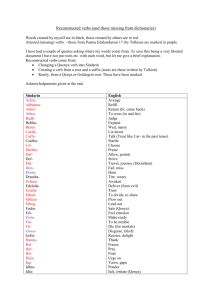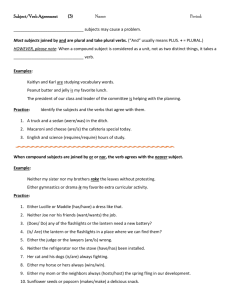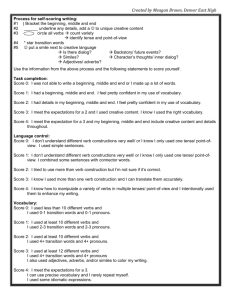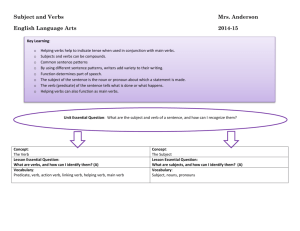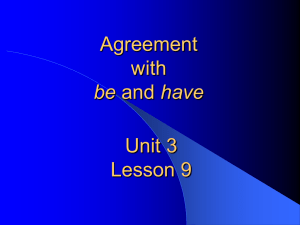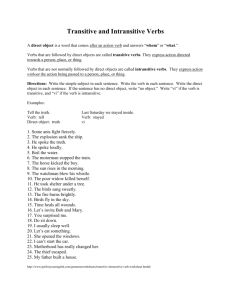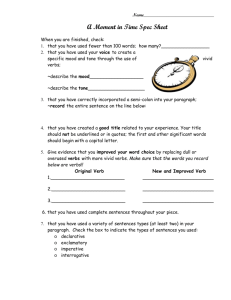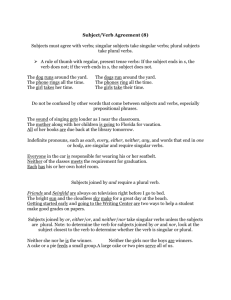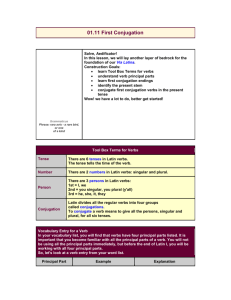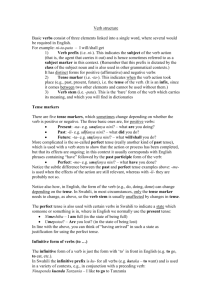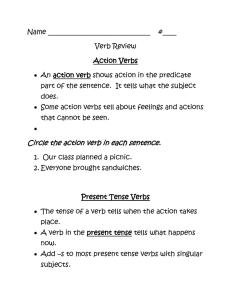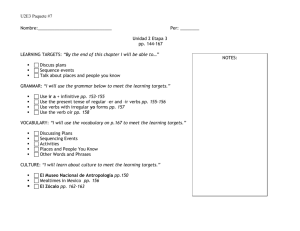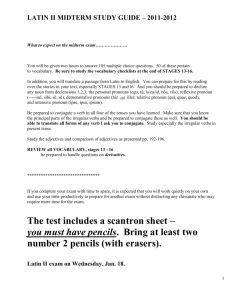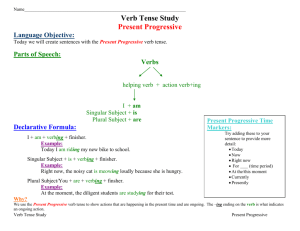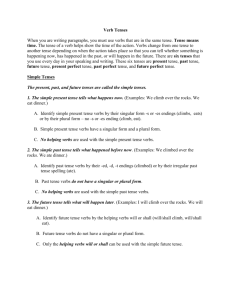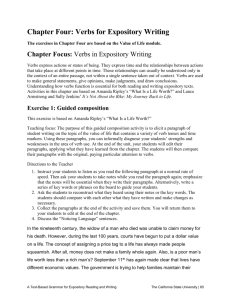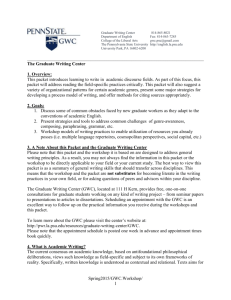Verb Study Guide
advertisement
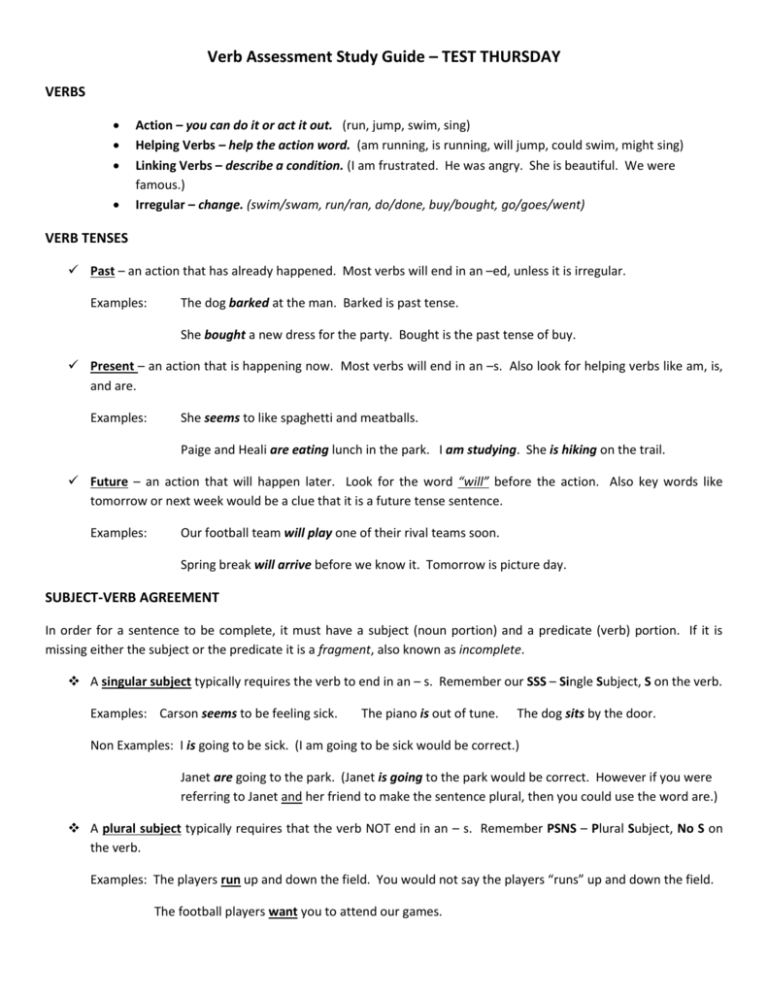
Verb Assessment Study Guide – TEST THURSDAY VERBS Action – you can do it or act it out. (run, jump, swim, sing) Helping Verbs – help the action word. (am running, is running, will jump, could swim, might sing) Linking Verbs – describe a condition. (I am frustrated. He was angry. She is beautiful. We were famous.) Irregular – change. (swim/swam, run/ran, do/done, buy/bought, go/goes/went) VERB TENSES Past – an action that has already happened. Most verbs will end in an –ed, unless it is irregular. Examples: The dog barked at the man. Barked is past tense. She bought a new dress for the party. Bought is the past tense of buy. Present – an action that is happening now. Most verbs will end in an –s. Also look for helping verbs like am, is, and are. Examples: She seems to like spaghetti and meatballs. Paige and Heali are eating lunch in the park. I am studying. She is hiking on the trail. Future – an action that will happen later. Look for the word “will” before the action. Also key words like tomorrow or next week would be a clue that it is a future tense sentence. Examples: Our football team will play one of their rival teams soon. Spring break will arrive before we know it. Tomorrow is picture day. SUBJECT-VERB AGREEMENT In order for a sentence to be complete, it must have a subject (noun portion) and a predicate (verb) portion. If it is missing either the subject or the predicate it is a fragment, also known as incomplete. A singular subject typically requires the verb to end in an – s. Remember our SSS – Single Subject, S on the verb. Examples: Carson seems to be feeling sick. The piano is out of tune. The dog sits by the door. Non Examples: I is going to be sick. (I am going to be sick would be correct.) Janet are going to the park. (Janet is going to the park would be correct. However if you were referring to Janet and her friend to make the sentence plural, then you could use the word are.) A plural subject typically requires that the verb NOT end in an – s. Remember PSNS – Plural Subject, No S on the verb. Examples: The players run up and down the field. You would not say the players “runs” up and down the field. The football players want you to attend our games.
